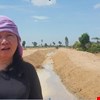NEWS SEARCH

/ Southeast Asia
GWP SEA in Action Initial Development of Collaboration Between GWP Southeast Asia and Lancang-Mekong Water Cooperation Centre (LMWRCC)
Lancang-Mekong Cooperation Mechanism was proposed by Chinese Primer Likeqiang ni the 17th China-ASEAN Leaders’ meeting held in November of 2015, which aims to strengthen all-round and friendly cooperation among China and Mekong countries and promote regional overall development. The First Lancang-Mekong (LMC) Foreign Ministers Meeting held in Jinghong, Yunnan Province of China in November of 2015 formally announced the establishment of the LMC Mechanism.
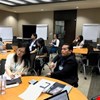
GWP SEA in Action: Regional Consultation on UN Water Regional Coordination with a Focus on SDG 6
United Nations Water (UN-Water) coordinates the efforts of United Nations entities and international organizations working on water and sanitation issues. The UN Regional Commissions are mandated to provide recommendations from all regions for a more efficient model for regional level coordination of UN-Water activities, in the context of the implementation of the 2030 Agenda for Sustainable development and with a focus on SDG6.
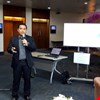
/ Southeast Asia
SDGs WEEK: Global Water Partnership Southeast Asia's Significant Contribution in Networking Session. 27 November – 1 December 2017 Bangkok, Thailand
Asia and the Pacific has made impressive progress towards achieving several sustainable development goals including poverty alleviation, education and economic growth. At the same time, the region needs to accelerate concerted efforts across all sectors to achieve the SDGs by 2030. In the face of transboundary challenges such as climate change and natural disasters, energy security and connectivity, ecosystem degradation on land and in our oceans, and promoting sustainable equitable trade, regional cooperation can support and complement the effectiveness of national mechanisms and be a link between global goals and country level commitments.
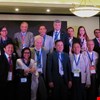
/ Southeast Asia
The 3RD Asia-Pacific Water Summit (APWS) Strengthens Multi-Stakeholders Approach To Achieve Water Secure World
Water is the interconnector of all other sectors; Therefore, it is not possible to support sectors development without understanding the role of water as one of the important development foundation. As important as it is, water is still considered as social goods and do not have value by development actors. This condition has created a very complex challenge for the development of water sector itself. In Asia Pacific region, the complexities of water challenges then urged the establishment of The Asia-Pacific Water Forum (APWF) in Asia Pacific region.
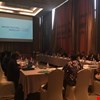
/ Southeast Asia
Water, and Climate Development Program (WACDEP) Regional Workshop Official Press Release
Bangkok, Thailand (12/8/2017). Southeast Asia is particularly vulnerable to climate change for several reasons. First and foremost, in many of these countries large portions of the population live in poverty. The proportion of the population living below the poverty line ranges from the lowest in Thailand at 10.2% to 53% in Lao PDR (ADB 2008). The poor are particularly vulnerable to climate change, as they lack the resources necessary for many types of adaptive actions. With its extensive coastlines, Southeast Asia is also home to many millions of people living at low elevations that are at risk from sea level rise. Moreover, ongoing social and environmental challenges in the region – notably growing income inequality, rising food prices, and widespread deforestation – contribute to social vulnerability and make climate change more likely to bring significant harms.
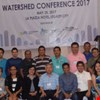
2017 Watershed Conference in Philippine
The event tackled the roles of LGUs, water districts, and stakeholders in the watersheds, updates and best practices in watershed management as well as other ingredients to ensure protection of our valued watersheds, in the context of planning, collaboration and action.
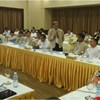
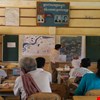
/ Southeast Asia
Awareness Raising on Basin Management Approach
On 28 September 2016, the CamboWP conducted Awareness Raising on Basin Management Approach with 18 participants who are Commune Council Members, Village Leaders and Deputy Leaders and Villagers of the Baray Commune which is located in the Mekong Floodplain.
